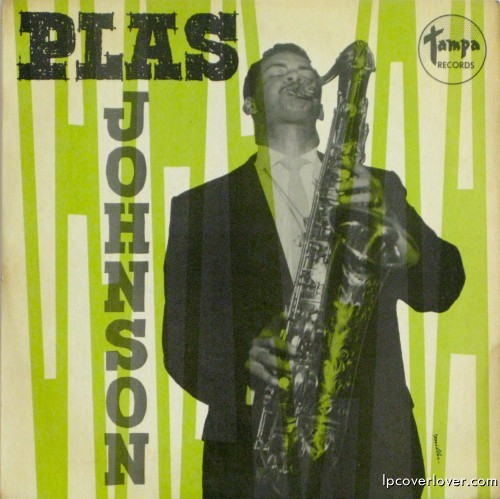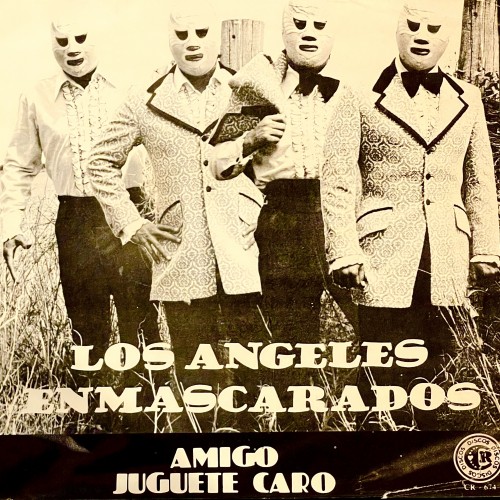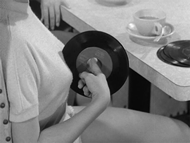Search Results
Your search for jazz cover returned the following results.
Plas please me
Plas Johnson on Tampa Records (1956) This red vinyl LP was reissued as “Bop Me, Daddy”. The accompanying musicians are: Ray Johnson (piano), Duke Harris (bass) and Sharky Hall (drums). The songs are: Makin’ Whoopee/Last Call/Dungaree Hop/Drum Magic/Blue Jean Shuffle/Plasma/Jackpot/Red Cider.
Plas Johnson can be heard on dozens of R&B recordings made in Los Angeles in the late 1950s, including ones by Don and Dewey, Larry Williams, the Cadets, Richard Berry, and many others. Perhaps his first noteworthy solo was the short piccolo figure that stands for the eponymous bird’s call on Bobby Day’s hit, “Rockin’ Robin.” He was a favorite featured saxman of Lex Baxter who wrote solos specially for him on African Jazz and Tamboo! And at Capitol he recorded with Nat “King” Cole, Peggy Lee, and Frank Sinatra. Plas even sat in on most of the early Beach Boys classics and was an integral part of a number of rock groups that existed in name only, such as B. Bumble and the Stingers and the Mar-Ketts.
While he may not be known by name outside music and collector’s circles, his sax intro to the “Pink Panther Theme” and his playing (with Harry “Sweets” Edison) on the soundtrack to “The Odd Couple” have made his playing part of our collective cultural consciousness.
A stone cold groove
“The Ice Man Cometh” Jerry Butler Mercury Records (1968) I love this guy. As a teenager he sang with Curtis Mayfield in Chicago and penned and sang lead on the Impressions first hit “For Your Precious” love.
Here’s a sweet one from The Ice Man: Never Gonna You Up
Here’s an enthusiastic review from Soul Makossa (check out his recommendations for more great music).
Although mostly recorded in Philadelphia, this album by soul troubadour Jerry Butler is in the Chicago Soul vein all the way; it’s too hard and gritty to be called ‘Philly’ – which wouldn’t surface as a genre until the early ’70s – despite the beautiful arrangements and sometimes huge orchestration.
Teaming up with future hitmakers Gamble and Huff, Butler cut his finest LP in 1968 with ‘The Iceman Cometh’. Veering between uptempo soul nuggets and truly magnificent, haunting ballads, many a contemporary R&B artist found inspiration in it and plenty of its tunes were covered well into the ’70s.
One of Butler’s best loved cuts, the bouncy, mid-tempo romper “Hey Western Union Man” became nothing short of a standard and the same can be said for the gently cruising gospelfide rockin’ soul beater “Only the Strong Survive”, one of the centrepieces on Elvis Presley’s comeback album ‘From Elvis In Memphis’.
Speaking of Memphis, the horn heavy “Can’t Forget About You, Baby” smacks of that big brassy Stax sound. A ferocious floorshaker, drenched in the sweet, purring vibe of the Hammond organ and embellished with the right amount of strings. Butler’s pleading, warm voice is at its best here, especially on the chorus. Decidedly more Windy City is the breezy, mellow “How Can I Get in Touch With You”, with its warm jazzy guitar, vibes and swirling violins.
And then there’s that deliciously groovy, laidback ballad “Just Because I Really Love You”, where the horns stretch out in suspense and the piano sounds dark and ominous. That same spooky atmosphere hangs around the brassy intro to “Lost”, a shufflin’, brooding piece sporting a crashing back beat, which works its way up to an anthemic, jubilant chorus.
Another soon-to-become evergreen appears in the guise of the slow burning “Never Give You Up”, a brilliant pop-soul confection covered by everyone from The Jacksons to Isaac Hayes. Equally snappy is the soft, despondent lament “Are You Happy”, with more subtle orchestration and another heart wrenching vocal.
Up next are two superb, dark, intensely sad ballads: the ghostly “(Strange) I Still Love You”, with its ethereal backing vocals, churchy organ and weeping strings, and the truly goosebump inducing “Go Away – Find Yourself”, an unbelievably touching, sweet rendering, majestically orchestrated.
Butler ends this magnificent longplayer on a more upbeat note, as he swoons, croons and wails his way through the country soul gem “I Stop By Heaven”.
A masterpiece.
Def Jam Records
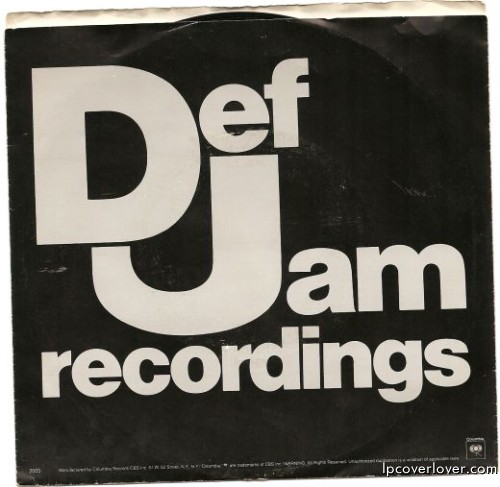
Def Jam Records picture sleeve back. Def Jam was the hip-hop house that Rick Rubin and Russell Simmons built. The first single released with a Def Jam Recordings logo was T La Rock & Jazzy Jay “It’s Yours” From the mid- 80’s through the end of the century, the label boasted a roster of rap heavyweights including LL Cool J, The Beastie Boys and Public Enemy.
“Albino Red” Rodney
Red Rodney A nice Prestige 10″ Features Jim Ford, Phil Raphael, Phil Leshin, and Phil Brown. Tracks: The Baron, This Time the Dream’s On Me, Mark, If You Are But a Dream, Red Wig, Smoke Gets in Your Eyes, Coogan’s Bluff
Robert Chudnick (Red Rodney), trumpeter and bandleader: born Philadelphia 27 September 1927; died Boynton Beach, Florida 27 May 1994.
AS THE FIRST white Bebop trumpet player, Red Rodney had one of the most prized jobs in jazz, playing trumpet in the quintet of the altoist Charlie Parker.
In 1945, when Rodney was 17, he was befriended by another trumpeter, Dizzy Gillespie, who in turn introduced him to Charlie Parker and the black musicians of New York.
‘I heard Charlie Parker and that was it’, said Rodney, ‘That was what I wanted to do with the rest of my life.’ He became one of the first generation of Bebop trumpet players. The others were Gillespie, Miles Davis, Fats Navarro and Kenny Dorham – Rodney survived them all.
In 1950 Parker was offered a very lucrative tour of the southern states by his agent Billy Shaw.
‘You gotta get rid of that redheaded trumpet player. We can’t have a white guy in a black band down south,’ Shaw told Parker.
‘I ain’t gonna get rid of him. He’s my man. Ain’t you ever heard of an albino? Red’s an albino,’ claimed Parker.
Rodney knew nothing of this until the quintet arrived for the first job of the tour at Spiro’s Beach in Maryland, where he was surprised to find a poster reading ‘The King of Bebop, Charlie Parker and His Orchestra featuring Albino Red, Blues Singer’.
‘You gotta sing the blues, Chood baby,’ said Parker (‘Chood’ was his nickname for Rodney, derived from the trumpeter’s real name, Chudnick).
When Parker died in 1955, Rodney joined Charlie Ventura for a short time, but his life became overwhelmed by his drug addiction and he left music altogether in 1958. He drifted to Las Vegas where, as a drug addict, he became a familiar of the local vice squad. He was sentenced several times to the federal narcotics hospital at Lexington, Kentucky.
One day he saw a photograph in a newspaper of one General Arnold T. MacIntyre. ‘Hey,’ he said, ‘I look like this cat’ A scheme took shape in his mind. A friendly printer forged some credit cards for him in MacIntyre’s name and 20 cheques, each for $1,840, the average monthly salary of a major- general. Rodney dyed his hair grey and bought a major-general’s uniform. Suitably equipped, he would walk into a bank and present himself as General MacIntyre, ask to see the manager, and flash his wad of credit cards. Using these methods he managed to live a life of luxury for a year.
He gave up drugs in 1978, his wife Helene called him ‘a born- again virgin’, and his career took off again when he formed a band with his fellow trumpeter Ira Sullivan and the pianist Gary Dial. Rodney took up the fluegelhorn to great effect. Playing better than ever before, he was in demand all over the world for clubs, concert halls and festivals and in his final years some of the best musicians of the younger generation, notably the remarkable alto player Chris Potter, queued up to join his band.
I love my baby
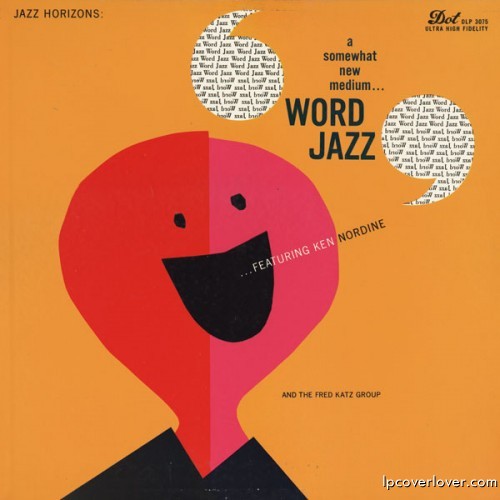
Ken Nordine and the Fred Katz Group “Word Jazz” Dot Records The crazy, twilight zone meets madison avenue meets jack kerouac recordings of the uniquely voiced Ken Nordine.
Dixie chick
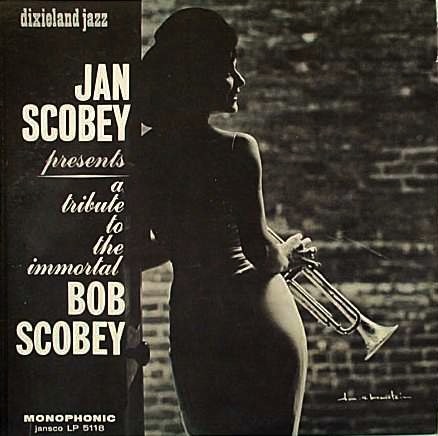
LP cover lover, Ross Smythe writes: I enjoy LP Cover Lover and check it a few times per week to see what’s new and unusual. Found this at the Orange County Record Show, a monthly event here in Southern California. The cover caught my attention. I had never seen this title before, and I liked the black and white, the shadows, and the photo of the young lady. Bob Scobey (1916 – 1963) was an American jazz trumpeter and bandleader – Jan is his wife and is the vocalist on this album. I’d be curious to see how your other viewers rate this cover. I’d give it at least a 4/5.
A french toast?
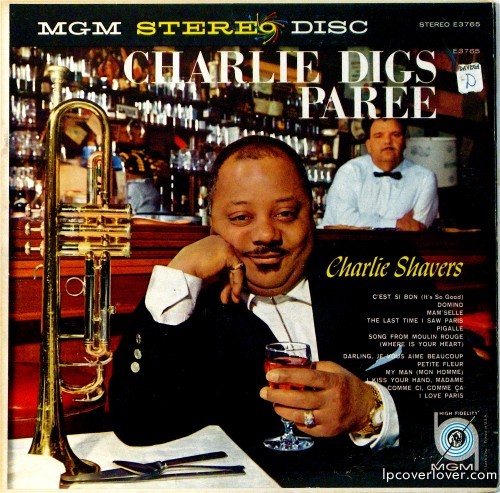
“Charlie Digs Paree” Charlie Shavers (August 3, 1920 – July 8, 1971) brings his golden trumpet to Paris. MGM Records (1959) Swing era trumpet great, arranger and composer, Shavers played with all the greats, wrote the jazz standard “Undecided” and made a number of recordings as trumpet soloist with Billie Holiday.
The Jackson Vibe
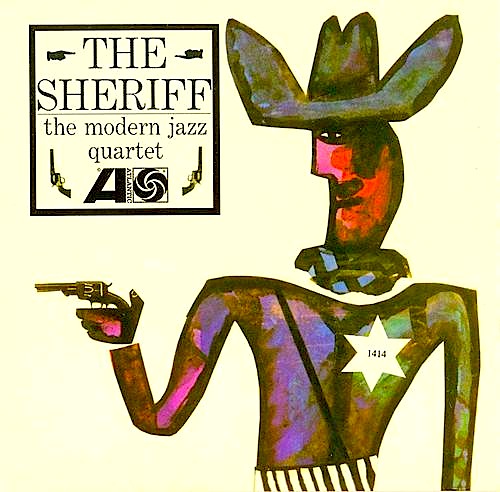
The Modern Jazz Quartet “The Sheriff” (Atlantic Records) (1963)
Smooth operator

Jonah Jones “I Dig Chicks!” Capitol Records This one is in the Hall of Fame. I’ve had this record since I was a kid. I would sit on the floor listening with the cover on my lap dreaming of getting a job as a construction crane operator some day. Incidentally, this album won the Grammy for best Jazz Group Performance of 1958. (Seems hard to believe considering the amazing jazz that was being recorded that year by Miles, Monk, Mingus, etc., etc.!)

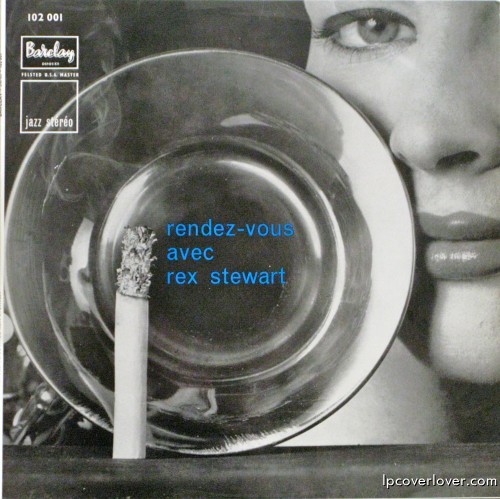
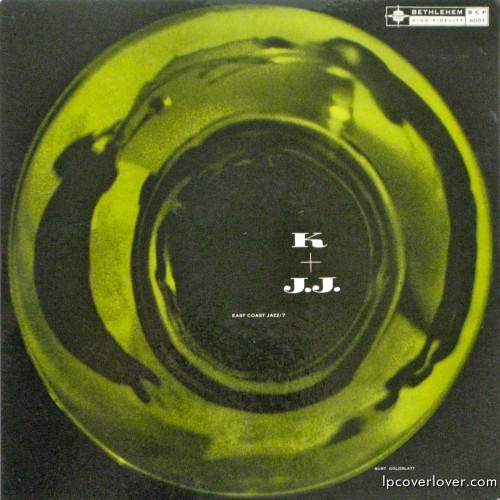

 (49 votes, average: 4.00 out of 5)
(49 votes, average: 4.00 out of 5)